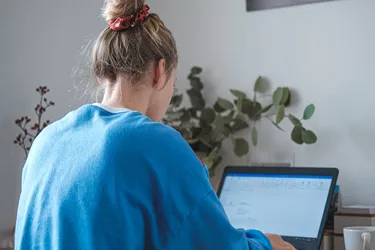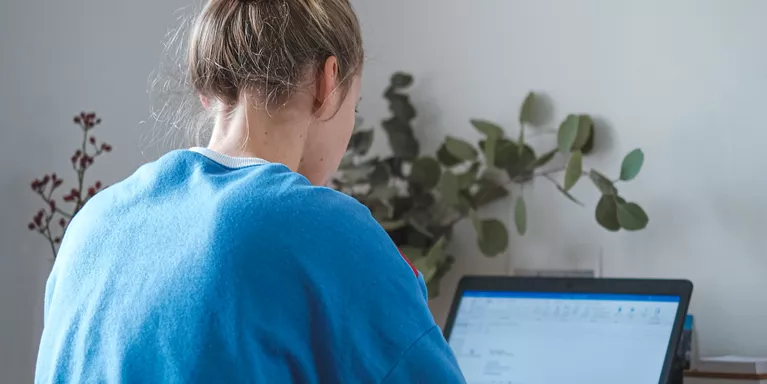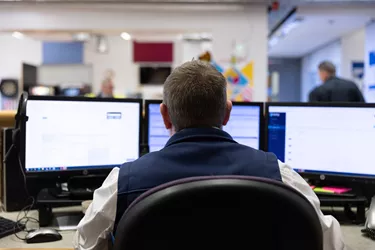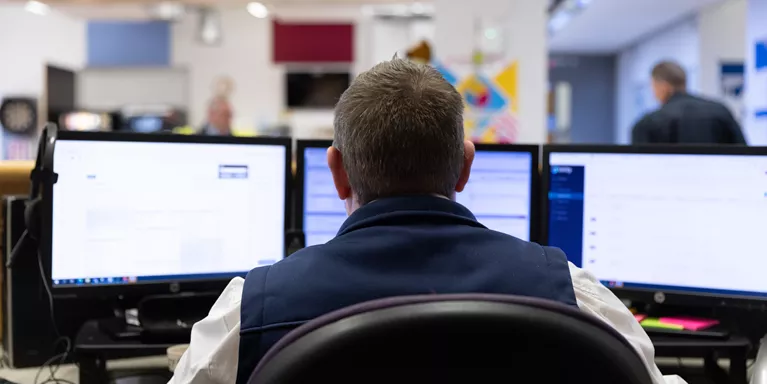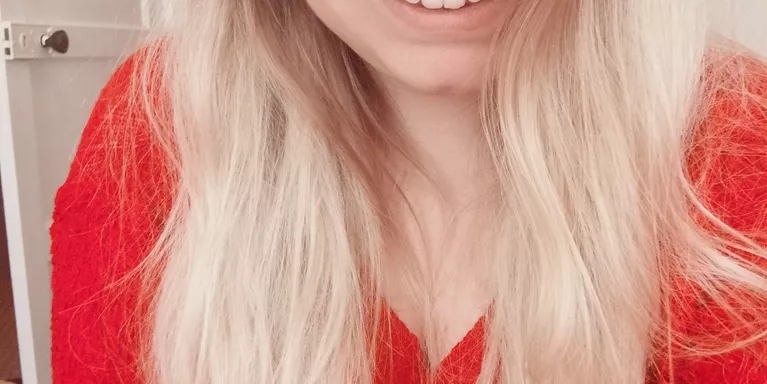How Active Monitoring brought me back from the edge
*Active Monitoring is now called supported self-help.
Sarah, from Treforest, explains how Active Monitoring gave her the tools to help cope with her depression.
I have suffered with anxiety and depression since I had postnatal depression, but this year’s continued lockdown pushed me further than ever. As well as not being able to see family and friends, my university course had been suspended, leaving me totally isolated.
My mood was so low, I was thinking of ending my life. I thought if I could just wait until my son was away at university in September, I could do it.
I had the presence of mind to go to my GP due to my frequent panic attacks, where they told me about a support group to join. However, I was told by the group that I wasn’t eligible to join them, which was a real kick in the teeth.
After that rejection, I returned to my GP who then referred me to Active Monitoring. I’m not sure I’d have had the confidence to get in touch with them myself, so it was good when my practitioner called me.
What is Active Monitoring?
Active Monitoring is a six-week guided self-help programme to help people manage their emotions. A practitioner provides us with all the tips and tools we need to understand ourselves better, and gives support throughout the course with regular phone calls.
I was terrified for my first assessment, as I was worried that I’d be turned away again, or told it wasn’t suitable for me.
I was pleasantly surprised that it was a very positive experience. My practitioner was totally non-judgemental, and I felt in control.
Being in control is important to me – I don’t like people telling me what to do and have found, in other counselling settings, it feels paced to the counsellor as opposed to the client.
“This was totally different; I never felt rushed, pressured, or uncomfortable, and I found myself looking forward to the sessions.”
Checking in on a regular basis really made a difference and put me on the right path – I felt it was helpful to have that bit of structure, especially because I’d been feeling so lost during the pandemic. My practitioner gave me some booklets and workbooks to complete, and I read over the notes I made quite regularly.
Another thing that helped me was the gratitude diary I was given. It was important for me to get some positivity into my life, and I’ve found that recognising even the smallest things lifts my mood; it doesn’t have to be big to make a difference. I read over that often too, and it helps to see what made me feel more positive in the past.
Developing the tools to cope
Active Monitoring has totally improved my life.
I was on a downward spiral and felt like an outsider in my own life, but now I feel as though I have the tools to cope.
I no longer dwell on the negative as much, and know there is always something I can do to help myself. I still use the gratitude diary, and it makes me smile when I look back and see notes like ‘had ice cream’ or ‘cuddled with my cat’, knowing these small things lifted my mood when I was down.
“It isn’t just a quick fix that momentarily makes you feel better – Active Monitoring's drastically changed my outlook, and has helped me more than I can say.”
I’ve already recommended the course to other people, and believe it would help everybody to try and see the positive a little more.
I never would have believed the course would help me so much, but it has.
Sarah lives with her soon-to-be 18-year-old son and 3 very spoilt cats, who demand Dreamies all the time! She loves drawing, painting, sewing and reading, and hopefully going back to college in September.


Information and support
When you’re living with a mental health problem, or supporting someone who is, having access to the right information - about a condition, treatment options, or practical issues - is vital. Visit our information pages to find out more.
Share your story with others
Blogs and stories can show that people with mental health problems are cared about, understood and listened to. We can use it to challenge the status quo and change attitudes.










